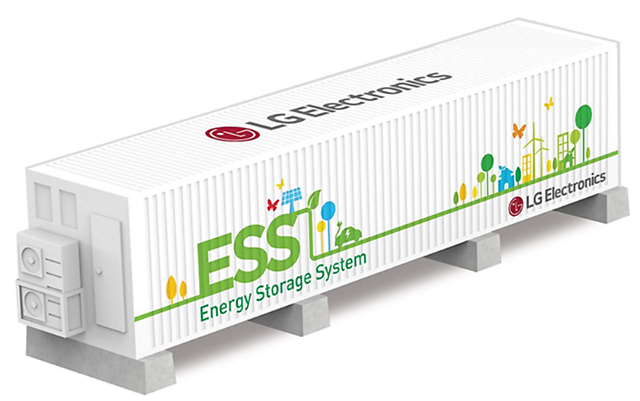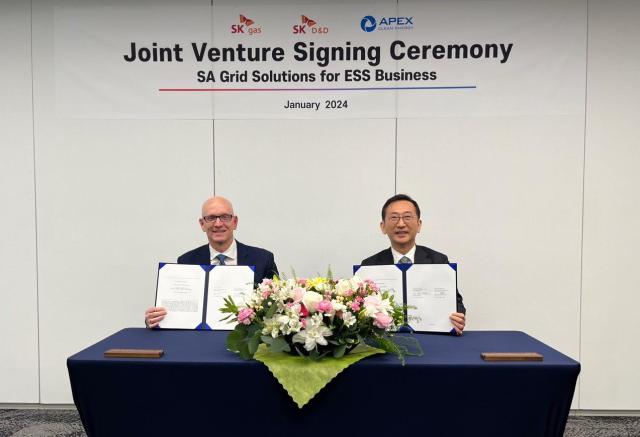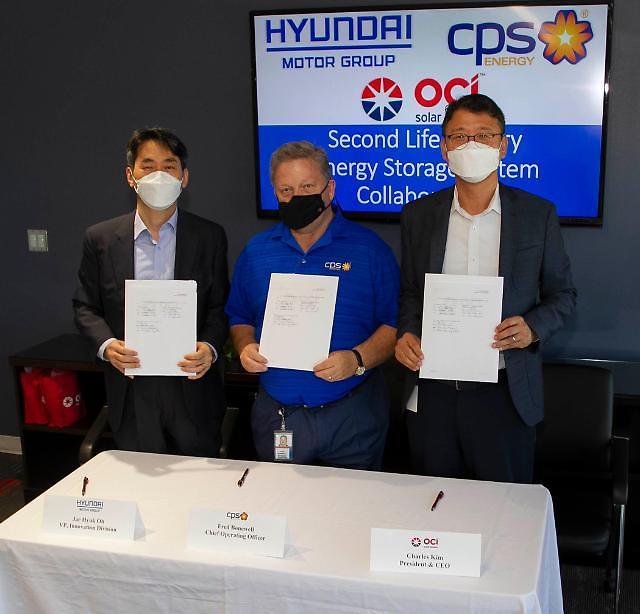
[Courtesy of LG Electronics]
SEOUL -- For a microgrid in Hawaii that aims to go carbon-zero by 2045, LG Electronics will supply an energy storage system for a microgrid through a consortium of South Korean and U.S. entities. The system can seamlessly provide electricity in case of blackouts and other disastrous situations.
A microgrid is an autonomously-controlled power grid that incorporates artificial intelligence, various power sources, and battery storage. It normally operates connected to a conventional wide area synchronous grid but can also detach from the big power network to rely on local renewable power sources such as a solar power generator and a micro hydropower system.
An energy storage system (ESS) includes battery packs and various systems for safe management. The large-capacity energy storage device stores electricity generated by eco-friendly power sources. An ESS facility is the size of a freight container. Multiple containers can be connected to create an ESS network.
LG Electronics said in a statement on March 24 that the consortium has signed a deal with the State of Hawaii to supply a 756-kilowatt-hour-class energy storage system for a microgrid for the Hawaii Ocean Science and Technology Park (HOST Park) operated by the Energy Laboratory of Hawaii Authority (NELHA).
The ESS capable of fully charging 10 electric vehicles with a maximum driving distance of 400 kilometers (248 miles) is operable between temperatures of -30 degrees Celsius (-22 Fahrenheit) and 50 degrees Celsius. It can be controlled remotely.
LG said that the ESS deal would create new business opportunities in the global market. "We will become the top player in the market by promoting differentiated products based on the industry's top-class technologies," said LG's ESS business head Ahn Hyun-sung.
The LG consortium coordinated by the Hawaii Natural Energy Institute includes NELHA, Coast Energy Capital Fund, University of Hawaii, the Korea Institute of Energy Technology Evaluation and Planning, Seoul National University, the Gwangju Institute of Science and Technology, and Encored, a big data-based internet of things (IoT) developer in South Korea.
The consortium will test the microgrid in a testbed demonstration site including 500 kilowatt-class photovoltaic panels for solar power generation.
Copyright ⓒ Aju Press All rights reserved.





View more comments